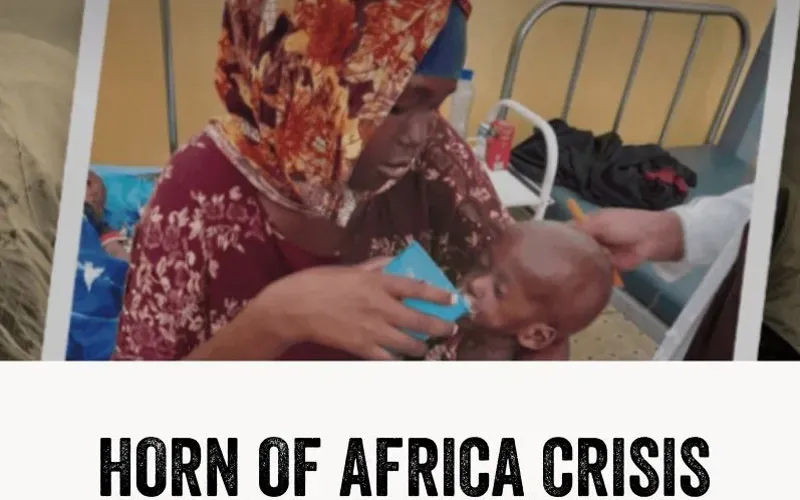Additionally, more than 16.2 million people cannot access enough water for drinking, cooking and cleaning, including 8.2 million in Ethiopia, 3.9 million in Somalia and 4.1 million in Kenya, the civil society actors say.
“Many water points have dried up or diminished in quality, heightening the risk of water-borne diseases and increasing the risk of skin and eye infections as families are forced to ration their water use and prioritize drinking and cooking over hygiene,” they say.
The non-governmental organizations express regret that early signs of drought and hunger have been ignored by those who had the capacity to stem them.
“Not that we didn’t see this coming, sadly,” they say, and explain, “Scientists have repeatedly warned of insufficient rainfall and prolonged drought, mostly attributed to the changing climate. The meteorological agencies have accurately predicted that rainfall would not be enough.”
The organizations decry the inaction of global leaders who they say “continue to drag their feet when it comes to honoring climate financing pledges.”
(Story continues below)
They note that the crisis is happening at a time when the Green Climate Fund (GCF), the body which they say is expected to ease what they term as bureaucracy associated with the World Bank and other financial institutions, “has turned out to be another nightmare in disbursing money meant for emergencies like the one witnessed in the Horn of Africa.”
“For a multilateral institution that was meant to be easily accessible, and quicker in response, it has been painfully slow for organizations to access the funds to ensure urgent adaptation interventions,” the organizations say in their collective statement in reference to GCF.
They add, “The people from the Horn of Africa can apply for funds and die, become forgotten and their next generation will wait long to receive the money, which is meant for urgent adaptation intervention.”
In their set of demands to the Horn of Africa governments, the organizations call on African heads of states to suspend all other development priorities and divert the national budget and human resources.
They say that at the moment, national budgets should prioritize providing food and nutrition assistance, water for domestic use as well as nutrition gardens supported through expanding drilling and rehabilitation of boreholes.
Governments in the African countries that continue to be ravished by hunger should also provide transparency and accountability in the distribution of relief assistance, and support humanitarian organizations for relief distribution.
Additionally, they should ensure all relief assistance and distribution efforts are conflict sensitive, gender responsive and inclusive, the humanitarian organizations say.
These governments should also lay out long-term adaptation and resilient and recovery strategies, including diversification of livelihood options of communities, such as smallholder irrigation systems and promotion of off-farm income generating activities.
Climate change-related funds, on their part, should prioritize the emergency response in the Horn of Africa to address drought, food, water, disease outbreaks and the survival needs of children, women and communities facing the crisis, the organizations have said in their set of demands.
The entities further call on donors, on their part, to make available resources to local, national and international organizations to protect and assist those affected and “staring at famine” in East and Horn of Africa countries.
To strengthen efforts by the Horn of Africa governments to save lives now, and give a lifeline to millions on the frontline of the hunger crisis, the humanitarian organizations appeal to the G7, G20, the International Monetary Fund (IMF), World Bank and all private creditors to suspend all debt repayments due in 2022 and 2023, and the same invested to responding to the worsening humanitarian crisis.
“Prioritization of distribution of funds should be reviewed to stop hunger-related loss of lives every minute and to ensure the protection of vulnerable groups, including women, girls, the elderly and the sick,” they say.
The organizations add that interventions such as school meals must be expanded to ensure all children remain in school, and girls are protected from all harmful practices including early, child and forced marriages, sexual and gender-based violence, abuse and exploitation.
In a list of other demands to the international community, the civil society organizations want countries to fast-track climate actions, including delivering climate finance for adaptation to African countries through grants.
Agnes Aineah is a Kenyan journalist with a background in digital and newspaper reporting. She holds a Master of Arts in Digital Journalism from the Aga Khan University, Graduate School of Media and Communications and a Bachelor's Degree in Linguistics, Media and Communications from Kenya's Moi University. Agnes currently serves as a journalist for ACI Africa.








